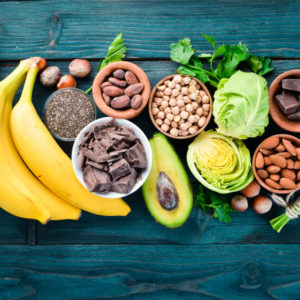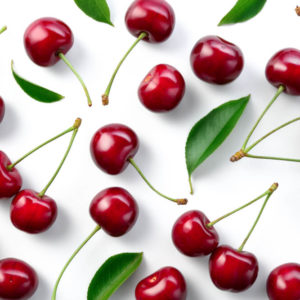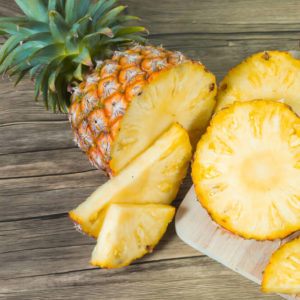
If you haven’t yet heard of boron, it’s time you start listening! Boron is an essential micro-mineral involved in a variety of processes in the body. In fact, the health benefits of boron range from hormone regulation, to vitamin D absorption – all crucial processes in helping you feel your absolute best!
What is Boron and Why is it So Important?
Boron is a micro-mineral that is required in trace amounts by the human body. You can think of boron as a catalyst that helps trigger important functions in the body like balancing the uptake of other essential minerals in the body and helping the body respond to various hormone activities.
Since boron is found in the soil, it is abundant in fruits and vegetables that are grown from that soil. Nutrient rich soils will have higher boron concentration than soils that are depleted of minerals.
Boron plays a large role in many different processes in the body, so a deficiency can become a problem.
Functions of Boron in the Body:
•Increases absorption and regulates calcium, magnesium, and phosphorous levels
• Prevents tooth decay
• Works with vitamin D to increase mineral content of bones
• Reduces inflammation
• Improves cartilage formation
• Works on the central nervous system, helping to maintain memory and improve brain function
• Regulates hormone production in men and women (increases estrogen in women)
• Reduces certain types of cancers such as prostate cancer
Signs of Boron Deficiency:
*Note: These symptoms may also be the result of a variety of different mineral/vitamin deficiencies and/or poor diet
– Tooth decay
– Osteoporosis
-Muscle pain/weakness
– Arthritis
– Memory problems
– Depression
– Hormonal imbalance
– Weak & brittle bones
Food sources of boron:
1. Apples
2. Broccoli
3. Cauliflower
4. Grapes
5. Leafy greens such as kale
6. Legumes
7. Nuts
8. Peaches
9. Pears
10. Prunes
11. Tomatoes
Try to get at least 1000 micrograms daily! Eating a wide variety of fresh, organic (especially local) fruit and vegetables should be sufficient enough for you to get adequate boron concentrations running through your blood!








Very interesting info.
I just wonder how can we get the Boron we need when most of the items listed are now genetically altered foods.
Buy as much organic as possible in the items listed above, local, farmer’s markets, etc.
Is there a chart somewhere that lists the approximate quantities of boron in each of these foods? I already eat a number of these foods on a regular basis, and would like to see where I am already.
I'm not sure of at the moment, but maybe type into Google and find a nutrition chart?
Boron also regulates magnesium, it is an 'anion' and like phosphorous will leach from the soil especially if there is low organic matter. Which is what happens when the soil is left bare and is routinely tilled.
Boron is considered the 1st mineral in the biological sequence and is referred to as a steering wheel for directing Calcium which is called the truck (loaded with other minerals into the plant).
Borax (Mule team borax) is indistinguishable from pharma grade boron and shouldn't be considered contaminated coming from western soils in the u.s. One way to increase your boron as well as a remedy for radiation poisoning is to soak in hot bath water with a tablespoon of borax. The best way is to have it in your plant and the
best way to know if it's in the fruit or vegetable is by noting the 'brix' of the plant. If you don't have a refractometer then you can buy one for about $75. as we have learned that brix is directly co-related to nutrient density. If the food has a high brix (total disolved solids) then guess what? You can just use your taste buds as it will taste great and it follows that if it tastes great then it will store well. Why because forcing with commercial nitrogen sources hasn't happened in other words organic fertizilizers -compost allow plants to dictate their own growth.
Furthermore if the seed is not a F1 or F2 hybrid but rather is an heirloom or open pollinated seed then the plant can become nutrient dense and therefore high brix.
Food that tastes bland or is bitter say 'celery' for ex. this does not really qualify as food. As it will tax your system to deal with it. Versus high brix celery which is sweet won't require pesticide as most bugs won't touch it because of the higher sugars. Big agri-business follows practices based on bottom line not quality.
A production model that confers quality is not viable at the prices conferred by cheap food policy. So meet a farmer or better yet plant a garden.
Dr. William Albrecht (The 'Freud' of Agronomy -soil science) noted soils in Texas that were high in calcium and the right ratio's of phosphorous and boron that produced very healthy individuals. One town boasted that if you ate the local food you would never need a dentist. (and it wasn't because there was flouride in the ground!)
I have heard that grapefruit sourced from California, Florida and Texas that the best tasting (highest brix) came from Texas.